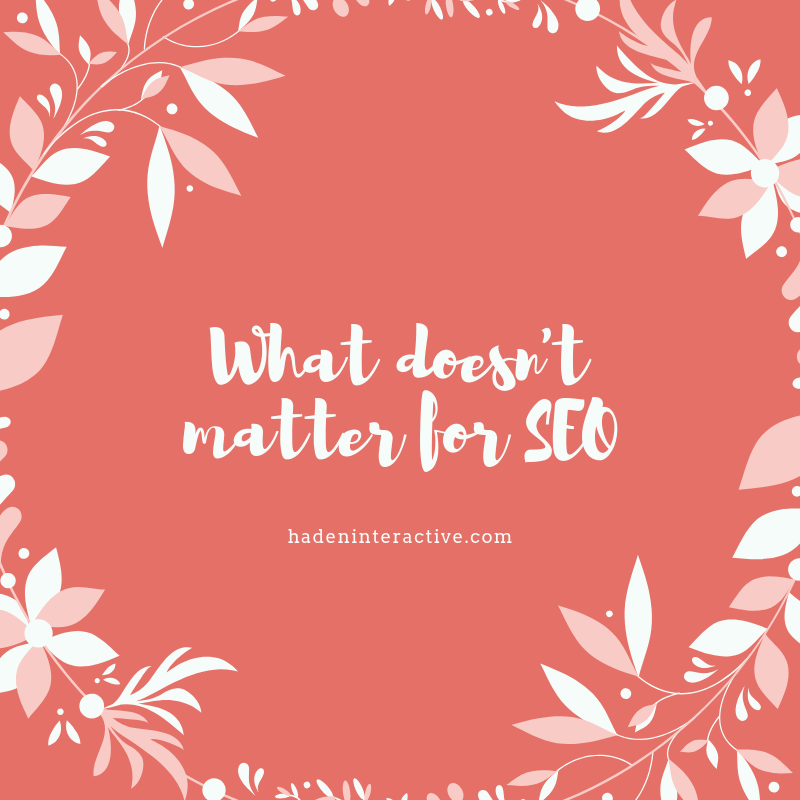Your cart is currently empty!

Things that Don’t Matter for SEO
Every now and then Google holds a sort of town hall in which people ask them questions about SEO — search engine optimization. “What about LSI keywords?” people ask, and “What’s the best length for a post?” and “How about keyword density?” The Googlers kindly say, over and over in slightly different words, “No, really, it’s all about good, useful content.”
Google also has lots of information online explaining that SEO is about good content.
“Creating compelling and useful content will likely influence your website more than any of the other factors discussed here. Users know good content when they see it and will likely want to direct other users to it.“
Adding fresh, high quality content to your website on a regular basis matters for SEO. When this content is good enough that people link to it from their own websites, that is also good for SEO.
As Google puts it, “You should build a website to benefit your users, and any optimization should be geared toward making the user experience better. One of those users is a search engine, which helps other users discover your content. Search Engine Optimization is about helping search engines understand and present content.”
So just write good stuff?
SEO is all about communicating with search engines. Sometimes good stuff that people enjoy doesn’t really communicate well with search engines.
That’s why it’s important to write for the search engines (or at least for Google, since they have almost all the market share) as well as for humans. Use terms people actually use when they search for information — that’s what we mean when we talk about keywords. Have a clear point and support it well. Have enough words to allow machines to understand what you’re saying. This allows Google to understand what you’re offering so they can show your page to the people who need it.
What doesn’t matter?
You don’t need a specific number of words. When we have a client who wants 480 words in a blog post, we deliver 480 words, but that’s just courtesy. There is evidence that machines can’t grasp meaning as well from posts with fewer than 300 words. Sometimes we have a lot to say and it takes 1500 words or more. But there is no magical number of words.
Traffic doesn’t matter to SEO. We have met people who click through their own results or hire other people to do so. Google says that traffic is not a ranking factor, and we believe them. First, because we know that we get clients’ pages ahead of Wikipedia when the clients do not have more traffic than Wikipedia. Second, because traffic can be easily manipulated. Nothing that can be easily faked with a machine is going to be an important part of Google’s algorithm.
Specific kinds of headings don’t matter for SEO. Your headings may be a design feature (though they’re not supposed to be, as your HTML teacher will tell you). They ought to make the structure of your page clear. They have no magic results for SEO. If you use headings correctly, they can improve user experience and make your page easier to understand for human and machine visitors alike.
Lots more things don’t matter
In general, you can recognize things that don’t really matter for SEO by the fact that they aren’t about quality content. Sometimes they could be done by a machine — which is never true for things that actually work for SEO. They might be offered to you in a spammy email.

You can recognize things that really matter for SEO because they are about quality content. They improve your user experience. They get traffic results like the screenshot above. Work steadily on adding fresh, useful, high quality content to your website on a regular basis, and you can relax about all the other SEO rumors.
by
Tags:

Leave a Reply